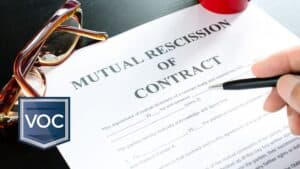Now that this pandemic has reached a point of no return, the general public has started to prepare for the aftermath of an economic crisis. Although timeshare companies were rather quiet during the first few weeks of the nation-wide quarantine, they’ve been adamantly working behind the scenes on a plan to sustain their business model. While most major resorts have communicated their losses, they haven’t said anything about the inconveniences their primary customers may face. So does this mean the timeshare travel strategy for COVID-19 won’t exactly be advantageous for vacation owners?
Everything about the history of timeshare ownership tells us that this could be a frustrating time for interval buyers. Especially those that recently made the purchase this year. Can you imagine spending tens of thousands of dollars on a perpetual obligation that may not be usable anywhere in the near future? Why should you be forced to view a paid vacation as a loss? Even if consumers sign up for better or for worse, is the timeshare business model really worth protecting? While it’s not for us to say, we do know that millions of owners are currently in limbo awaiting answers.
Why Timeshare Owners Are Probably Getting Anxious.
So why do timeshare companies feel reassurement is the best choice of action? What makes them believe they’ll put high paying customers at ease by announcing more money will be spent on sanitation? How do announcements about resort layoffs help timeshare owners feel better about paying for something they can’t use? How long will they be able to buy time when the timeshare travel strategy for COVID-19 doesn’t even seem to include vacation owners.

The timeshare industry, as a whole, racks in billions of dollars every year. No matter what they tell the public, it’s going to be hard for most timeshare owners to believe their loss is warranted. If maintenance fees rise or special assessments are billed for an influx in owners defaulting, then the average Joe (who’s probably drowning financially during the pandemic) is not going to be very happy – and rightfully so. Why should they be patient if the timeshare expense is a huge burden for them right now?
HOW ABOUT AN EXAMPLE?
Should Netflix subscribers be forced to pay their monthly dues if the internet went down? If you paid for a season pass at a zoo that caught fire, would you ask for a refund? Although these are significantly smaller dollar amounts, we can all agree that it would be bothersome to be on the hook amidst inconvenience on our end. Now imagine that the streaming bill or zoo visit cost you $350 per month.
What if the website or zoo piled on maintenance fees at the end of the year (that you vaguely remember agreeing to)? How would a perpetual obligation to pay for these things make you feel? Imagine knowing your credit would be ruined or that judgments may be filed if you didn’t pay on time – in the middle of a global pandemic. Customer satisfaction would have to be at an all-time low.
Why Would Timeshare Travel Change It’s Strategy?
The thing about the timeshare industry is, morale hasn’t always been the best. Truth be told, complaints are often ignored. Every year, millions of dollars are wasted on lobbying and lawsuits to control public perception. Endorsers are paid to influence sales and politicians are rewarded for passing laws to their advantage. The billions of dollars in earnings haven’t been used to reward or serve their high paying timeshare owners. In other words, the timeshare travel strategy has always been self-serving – even before COVID-19.

While we do recognize the industry as a business, it’s hard to justify their past actions towards the consumer. So why should we believe this will change during a crisis that directly affects their business? Over the last several weeks, we’ve taken the time to post a number of news articles about the current updates that timeshare companies have published online. We’ve spent a lot of time looking for hope for timeshare owners. But nothing has shown us change is in the near future.
What Most Timeshare Resorts Are Saying About COVID-19.
After digging through dozens of news releases regarding timeshare travel and the Coronavirus, we’ve come to a few conclusions. First and foremost, it seems as though resorts are reaching out just to reach out. It’s as if they’re all saying the same thing. For the most part, it seems like the intent is to inform shareholders that there is a timeshare travel strategy in place. Communicating their ability to remain afloat through the storm seems to take precedence over anything else.
Apparently, vacation owners are supposed to be content with their ability to use the resort when it’s all said and done. Promoting positivity and encouraging patience helps timeshare companies garner trust. Keeping owners in the dark distracts them from what could be seen as profiteering. What makes matters worse is the simple fact timeshare owners are not invested in the property.
Buyers don’t have equity in the resort like that of a house. They don’t own it. So the types of announcements that resorts are publishing right now are worthless. No light is being shone on the real victims here. What this tells us is that hospitality chains are currently more concerned with brand equity than customer satisfaction – like they’ve always been. Why would they be when perpetual contracts guarantee income and eliminate retention.

Informative Updates Turn to Public Relations Stunts.
Why should they care about their owners when they’re already obligated to pay? Vague news releases and updates give timeshare companies one thing – more time. When you think about it, a lack of disclosure is something they use quite often. Almost the entirety of the timeshare sales presentation is predicated on avoiding pertinent contract details. Keeping timeshare owners in the dark right now allows them to remain in control and profit in the meantime.
At the end of the day, hotel chains are using the idea of a timeshare travel strategy for COVID-19 as a PR stunt. Why else would they promote employee firings or boast about acts of public service when owners may be in need of answers? When the general public feels sorry for their losses and applauds their efforts, it makes it awfully difficult to notice struggling timeshare owners. Putting out good content and a positive image during a crisis is essentially an advertisement – not a timeshare travel strategy for COVID-19.
What Timeshare Resorts Are Actually Doing.
When it comes to the announcements that timeshare companies are making, their statements are rather misleading. If you actually take the time to research resort happenings you’ll find that layoffs aren’t exactly what they seem. First of all, most firings have occurred in the sales divisions. Since timeshares aren’t able to hold presentations right now, there isn’t a need for salesmen. This actually presents them with quite a bit of savings as millions of dollars are spent annually on new acquisition. It’s by far the highest cost of the industry.
Other employee layoffs haven’t been as convenient like the way some resorts made it sound. Many staff members have been asked to take furloughs or mandatory time off with no pay. In other words, some people aren’t even getting laid off or fired. Timeshare companies are literally expecting them to wait out the pandemic in order to keep their job. This leaves the decision in their hands to quit or move on if they can’t survive.
Many of these positions, like sales teams, are easily replaceable. If anything, the resort will be able to employ a young, fresh and energetic workforce once their doors reopen. While they may be forced to cut costs and say goodbye to some tenured people, doing so is not in the least bit disadvantageous to their business. All stakeholders and key staff members will more than likely remain intact.

Is There Really a Timeshare Travel Strategy for COVID-19.
The point of this article is to encourage vacation owners to look into things themselves. Far too many expect the truth from timeshare companies and rarely suspect deception. But in the wake of a pandemic – that directly affects the travel industry – they have to be able to expect the worst. Especially when the track record of the industry is rather consistent. Like we mentioned before, nothing in the past has shown us that vacation owners will be considered in the middle of a crisis. Even natural disasters or emergency situations haven’t elicited empathy or compassion.
Buyers of this type of product are customers. They aren’t shareholders and they don’t own anything of value. Most can’t even rent or sell the property for profit. There’s no return on their payments other than the possibility of a good time – that one may argue can be obtained at a cheaper rate and with more flexibility. A timeshare interval is not homeownership or an investment of any kind. Owners should not have to take on the burden when the business stops. They paid for something and they aren’t getting it. Just because the industry is losing income doesn’t mean the customer should suffer.
No matter how many lawsuits timeshare companies fight or lobbyists they’re able to pay – one thing remains clear. There’s always an agenda with this industry and it rarely focuses on the consumer’s concern. As long as they can keep timeshare owners calm, patient and under contract through the pandemic, they’ll come out of it in great shape. Sadly, many vacation owners won’t be able to keep up with the billion dollar industry.






